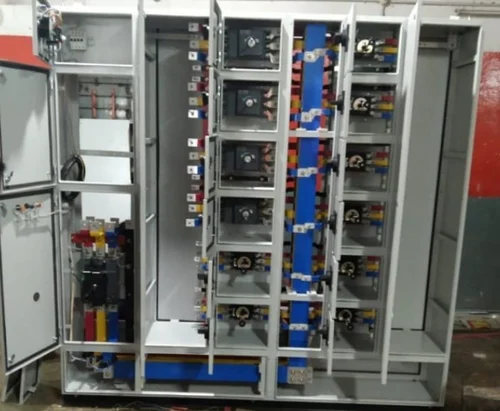MCC MOTOR CONTROL CENTRE PANELS
MCC (Motor Control Centre) panels are an essential component in industrial power distribution systems, designed to control and distribute power to motors and other electrical devices. Typically housed in a single or multiple enclosures, MCC panels consist of various motor control units such as circuit breakers, fuses, overload relays, contactors, and transformers, all of which help in managing and protecting electrical motors. The primary purpose of an MCC panel is to centralize control of the motors by consolidating motor-starting devices and control equipment in a single location, which enhances the efficiency of motor management in large industrial plants.
MCC panels come in two main configurations: fixed and draw-out types. Fixed MCC panels have all the components mounted in a fixed position, whereas the draw-out types allow for easy maintenance and replacement as the individual units (buckets) can be easily removed from the panel without disrupting power to other units. These panels can either be manually or automatically controlled and often include monitoring devices to track performance, energy consumption, and potential faults in real-time. Advanced MCC panels are equipped with PLC (Programmable Logic Controller) integration, making them more adaptive to automated processes and enabling smoother operations.
In industrial environments such as manufacturing plants, refineries, water treatment plants, and heavy machinery operations, MCC panels play a vital role in ensuring reliable motor performance and operational safety. They are engineered to meet specific industry standards like the IEC and NEMA, ensuring durability, safety, and efficiency in harsh operating conditions. Key features like short-circuit protection, motor overload protection, and remote control capabilities enhance the operational resilience of the system, while the modular design allows for easy expansion and future upgrades.
As industries move toward automation and digitalization, MCC panels have evolved to incorporate intelligent systems for monitoring and controlling motors in real-time. This shift improves energy efficiency, reduces downtime, and enhances overall process control, which is critical in ensuring smooth industrial operations.
.jpg)
